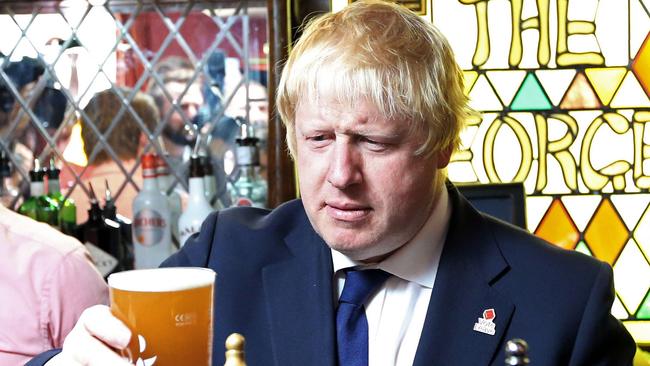Brexit’s real impact would be gradual
Observers worry a leave vote will tank markets but the greater consequences could take longer.

Anxious prognosticators worry a British vote to leave the European Union Thursday would tank the country’s financial markets and precipitate a recession. Those predictions are largely guesses, and probably overwrought.
The greater consequences are more subtle, gradual, and global.
Brexit would be the starkest repudiation yet of the post-war consensus favouring ever-deeper global integration. That consensus is already fraying in the face of growing protectionism and anti-immigrant sentiment worldwide. A further unravelling would undermine global growth prospects already clouded by ageing populations and miserable productivity.
The consensus for greater integration has been remarkably durable to date. Since the EU’s founding in 1957, 28 countries have joined and none have left (other than Greenland, a Danish territory, and Algeria, a former French colony). Indeed, it is rare for any country to deliberately withdraw from a trade pact except to join a better one. Since the World Trade Organization’s inception in 1948 (as the General Agreement on Tariffs and Trade), 162 countries have joined and none have left.
This is largely because governing elites have come to accept the economic rationale for integration. It increases the size of the market, exposes local firms to more competition and accelerates the dissemination of new ideas via foreign investment and immigration. In 2004, academic economists Scott Bradford and Robert Lawrence estimated the world would be 7 per cent poorer if it reverted to the trade rules of the 1930s.
The British economy was declining relative to France’s and Germany’s until it joined the EU in 1973. Margaret Thatcher became prime minister in 1979 and began loosening the state’s grip on the economy. Since then, Britain’s per capita income has grown as fast, or faster, than France’s and Germany’s.
The soft underbelly of this economic success is its fragile political legitimacy. Brexit advocates have long chafed at the EU’s interference in British affairs. Yet international treaties like the EU and the WTO are by their nature undemocratic insofar as they compel signatories to bind their own hands for the common good. British firms grouse about EU meddling in their markets but benefit when that meddling knocks down barriers on the continent.
Critics say global integration enriches elites at the expense of the average worker. This, too, is off base. More skilled workers have gained disproportionately, but every worker is also a consumer and thus benefits when international competition makes products better and cheaper. Doug Irwin, a trade historian at Dartmouth College, says if two million American workers lose $US15,000 in annual income forever — an extreme estimate of the impact of trade with China — while 320 million American consumers gain just $US100 from trade, the benefits to all of society still exceed the costs.
Even immigration is, on balance, probably a plus. The Center for Economic Performance at the London School of Economics finds that EU immigrants to Britain are better educated and more likely to work than UK-born nationals, and to pay more in taxes than they collect in benefits.
If Britain leaves the EU it wouldn’t implode: it’s not about to return to its over-protected, over-regulated pre-Thatcher status.
There will be costs; a review of 13 separate studies found eight saying Britain would be worse off and three saying it would be better off. (The remainder saw mixed effects). Still, even the British government’s estimates of 0.2 to 0.6 percentage points lower growth over 15 years may not be enough for the average Briton to notice.
Yet those costs are real. More important, pivoting from a path of more open to less open borders will chip away at the margin to Britain’s long-term growth path, which it can ill afford given that productivity growth has recently averaged around zero. Nor will the consequences stop at Britain’s shores. If there is no serious short-term fallout from Brexit, it might energise anti-EU politicians in France and the Netherlands who, like Brexit advocates, have benefited principally from anxiety about immigration rather than economic concerns.
It also would come as protectionism creeps back worldwide. Global Trade Alert, a Geneva-based watchdog group, counts 714 government edicts to foreign companies to produce or source locally in exchange for market access or government contracts since 2008. Last month Jeffrey Immelt, the chief executive of General Electric, said companies were being forced to organise their businesses around such actions: “We used to have one site to make locomotives; now we have multiple global sites that give us market access. A localisation strategy can’t be shut down by protectionist politics.”
Spreading production among more plants may protect a company from protectionist impulses, but it also reduces productivity and raises costs for its customers. Multiplied across many countries and companies, the effects add up. Gary Hufbauer, an economist at the Peterson Institute for International Economics, thinks the slowdown in global trade growth since 2010, which he blames in part on protectionism, has left world GDP 2.7 per cent smaller than otherwise.
If Britain leaves the EU, expect that drag to grow in the years ahead.
Dow Jones





